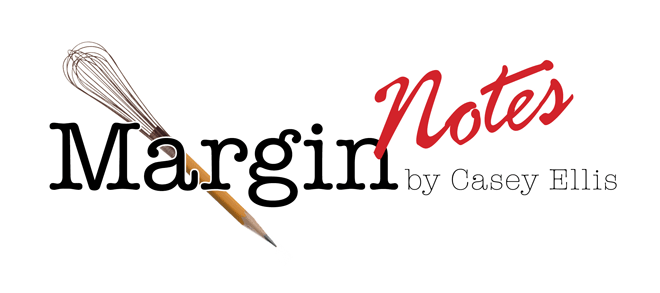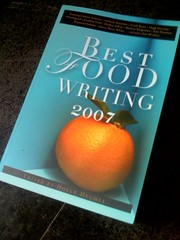I miss Kim Severson.
Oh, I know she writes regularly -- and wonderfully -- for the New York Times, but I miss her days on staff at the San Francisco Chronicle when she wrote about restaurants and chefs and food purvveyors closer to me, me, me.
If you don't know Severson's work, you'll find a terrific example of it in the recently published "Best Food Writing 2007." These yearly compendiums edited by Holly Hughes always contain treasures, and this one also includes pieces by some of my other favorite food writers: Colman Andrews, Daniel Patterson, John Thorne and the always fabulous Mr. Bourdain.
Severson's piece, "A Grandchild of Italy Cracks the Spaghetti Code," focuses her considerable investigative skills on her own family's cooking traditions and opens with these wonderful lines:
My Italian is so bad I have a hard time pronouncing gnocchi, but I grew up hearing enough of it to know when I'm being yelled at. And that's definitely what was happening at a table in a small roadside restaurant in Abruzzi.
Makes you want to keep reading, doesn't it?
The opening of Bourdain's "My Miami," on the other hand, made me want to stop reading for a minute and go punch a wall out of sheer writerly jealousy:
Like a heat-seeking missile, I can find my way to the finest steamed shark's head in Singapore or the best bun cha in Hanoi. Blindfolded, with one wrist cuffed to an ankle, I can drive you to the earthiest pig's foot-soup in the Dutch West Indies, or to the world's most sublime soup dumplings in Taipei. But in Miami, one of the most international of cities, I am pathetically up a creek.
[Hughes writes in her headnote to the Bourdain piece: "the man can craft a sentence," which is like saying that Thomas Kellar can craft a custard or Pierre Herme can craft a macaron.]
In my perfect reading-about-food world Tony Bourdain would keep a pied-a-terre in San Francisco to hang out in between travels and Kim Severson would move back to the Bay Area, never again to roam farther away than the Napa Valley or Carmel. At the very least they each could phone me to discuss the matter.



